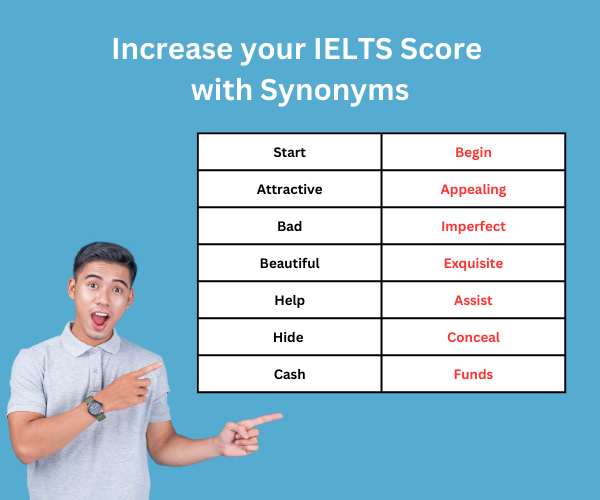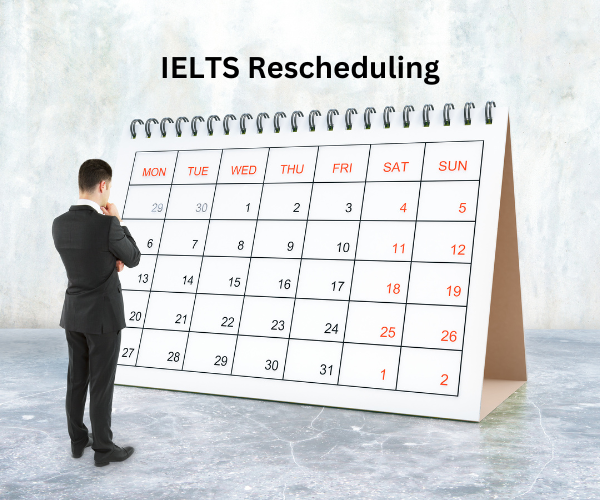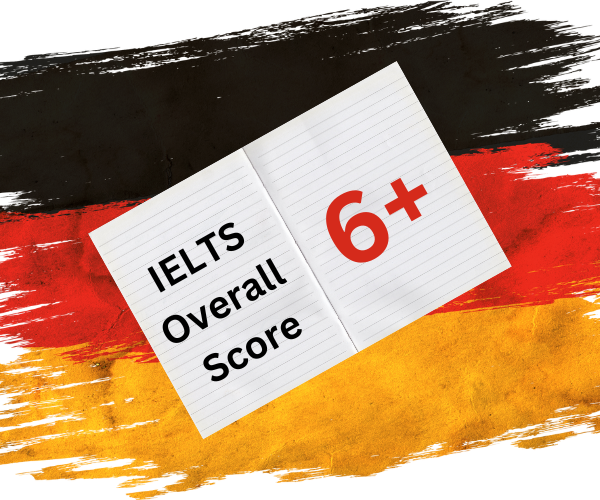
Disclaimer: StudyHQ does not conduct IELTS. All information here is for guidance purposes. Please refer to the official IELTS website or authorized test centers for the latest updates, exam booking, and policies.
The International English Language Testing System (IELTS Exam) is a standardized test designed to assess the English language proficiency of non-native English speakers. It is widely recognized by universities, employers, immigration authorities, and professional bodies worldwide.
Who needs IELTS?
IELTS is needed by individuals applying for study, work, or migration in English-speaking countries. It helps students meet university requirements, professionals secure job opportunities, and immigrants prove language proficiency for visa applications.
IELTS Test Types
- IELTS Academic—The IELTS Academic Test is designed to assess English Language Proficiency at academic levels, especially undergraduate and postgraduate levels. The exam incorporates vocabulary frequently encountered in educational contexts.
- IELTS General Training– The IELTS General Training Test assesses the English Language Proficiency of those who are migrating for work to an English English-speaking country or for studies at a lower level.
- IELTS UKVI– IELTS UKVI is specifically designed for UK Visa and Immigration purposes. The applicants are required to prove their listening and speaking skills at the Common European Framework of Reference of Languages (CEFR) levels. IELTS UKVI can be taken as UKVI Academic, UKVI General, or UKVI Life Skills.
IELTS Exam Pattern
Both IELTS Academic and IELTS General Training has 4 sections- Listening, Reading, Speaking, Writing. Let us look at the format of these tests:
| IELTS Academic | IELTS General | |
| Listening | four recorded texts – two monologues and two conversations- MCQ, matching, plan, diagram,flow chart, summary, sentence completion, short answer questions | Same as IELTS Academic |
| Reading | Identify the opinions, attitudes, and purpose of the writers- MCQs, True/ False, Matching information, matching headings, sentence completion | 5- 6 texts of varying lengths with similar tasks as the Academic tests. |
| Speaking | Two tasks- each addressing topics of broad relevance and suitability for individuals entering undergraduate or postgraduate studies | Two tasks with topics of general interest to assess communication skills in real-life situations. |
| Writing | Respond to a situation in about 150 words asking for information or explaining | Discuss a point of view, an argument or a problem given |
| Sections | IELTS Academic | IELTS General | Time Allotted |
| Listening | 4 parts, 40 questions | 4 parts, 40 questions | 30 mins |
| Reading | 3 passages, 40 questions | 3 sections, 40 questions | 60 mins |
| Writing | 1: Describe Information2:Essay | 1: Write a letter2: Essay | 60 mins |
| Speaking | 1: Introduction & Interview2: Individual Long turn3: Discussion | 1: Introduction & Interview2: Individual Long turn3: Discussion | 11- 14 mins |
How the IELTS Scores are Calculated?
The IELTS (International English Language Testing System) score is calculated based on your performance in four sections: Listening, Reading, Writing, and Speaking. Each section in the IELTS exam is scored on a band scale from 0 to 9, with 9 being the highest. The scores from these four sections are then averaged to give an overall band score.
Here’s how it works:
| Listening | Reading | Speaking | Writing |
| 40 questions for 1 mark each and these scores are converted on a 9- band scale | 40 questions for 1 mark each and these scores are converted on a 9- band scale. | 4 task criteria weighed equally and the score is the average of the four | All 4 task criteria weighed equally and the score is the overall average |
Interpreting your Results
Here is a table on IELTS Band Scores:
| Band Score | Reading | Listening | Speaking | Writing | Proficiency | Explanation |
|---|---|---|---|---|---|---|
| 9 | 39-40 | 39-40 | 8.5-9 | 8.5-9 | Expert User | Possesses proficient mastery of the language with full operational command. Demonstrates appropriate, accurate, and fluent use of English, indicating a thorough comprehension. |
| 8.5 | 37-38 | 37-38 | 8-8.5 | 8-8.5 | Very Good User | Demonstrates a fully operational command of the language, with occasional unsystematic inaccuracies and inappropriate usage. May experience occasional misunderstandings in unfamiliar situations. Capable of handling complex and detailed argumentation proficiently. |
| 8 | 35-36 | 35-35 | 7.5-8 | 7.5-8 | Very Good User | Demonstrates a fully operational command of the language, with occasional unsystematic inaccuracies and inappropriate usage. May experience occasional misunderstandings in unfamiliar situations. Capable of handling complex and detailed argumentation proficiently. |
| 7.5 | 33-34 | 32-33 | 7-7.5 | 7-7.5 | Good User | Exhibits operational command of the language, with occasional inaccuracies, inappropriate usage, and misunderstandings in certain situations. Demonstrates proficiency in handling complex language and detailed reasoning. |
| 7 | 30-32 | 30-31 | 6.5-7 | 6.5-7 | Good User | Exhibits operational command of the language, with occasional inaccuracies, inappropriate usage, and misunderstandings in certain situations. Demonstrates proficiency in handling complex language and detailed reasoning. |
| 6.5 | 27-29 | 26-29 | 6-6.5 | 6-6.5 | Competent User | Demonstrates effective command of the language despite occasional inaccuracies, inappropriate usage, and misunderstandings. Capable of using and understanding reasonably complex language, especially in familiar contexts. |
| 6 | 23-26 | 23-25 | 5.5-6 | 5.5-6 | Competent User | Demonstrates effective command of the language despite occasional inaccuracies, inappropriate usage, and misunderstandings. Capable of using and understanding reasonably complex language, especially in familiar contexts. |
| 5.5 | 19-22 | 18-22 | 5-5.5 | 5-5.5 | Modest User | Shows a partial command of the language and manages to grasp the overall meaning in most situations, though they may make numerous mistakes. Expected to handle basic communication within their own field. |
| 5 | 16-18 | 16-17 | 4-5 | 4-5 | Modest User | Shows a partial command of the language and manages to grasp the overall meaning in most situations, though they may make numerous mistakes. Expected to handle basic communication within their own field. |
| 4.5 | 13-15 | 13-15 | 3.5-4 | 3.5-4 | Limited User | Basic competence in familiar situations. They often encounter difficulties in understanding and expressing themselves. |
| 4 | 10-12 | 10-12 | 3-3.5 | 3-3.5 | Limited User | Basic competence in familiar situations. They often encounter difficulties in understanding and expressing themselves. |
| 3.5 | 8-9 | 8-9 | 2.5-3 | 2.5-3 | Extremely Limited | Can convey and understand only general meaning in highly familiar situations. Communication breakdowns occur frequently. |
| 3 | 6-7 | 6-7 | 2-2.5 | 2-2.5 | Extremely Limited | Can convey and understand only general meaning in highly familiar situations. Communication breakdowns occur frequently. |
| 2.5 | 4-5 | 4-5 | 1.5-2 | 1.5-2 | Intermittent User | Struggles significantly in both spoken and written English. |
| 2 | 3 | 3 | 1-1.5 | 1-1.5 | Intermittent User | Struggles significantly in both spoken and written English. |
| 1.5 | 2 | 2 | 0.5-1 | 0.5-1 | Non-User | Lacks the ability to use the language except for a few isolated words. |
| 1 | 1 | 1 | 0-0.5 | 0-0.5 | Non-User | Lacks the ability to use the language except for a few isolated words. |
| 0 | 0 | 0 | 0 | 0 | Non-User | Didn’t answer the questions |
IELTS and the CEFR
| Proficient User | C2 | 8.5- 9.0 |
| C1 | 7.0- 8.0 | |
| Independent User | B2 | 5.5- 6.5 |
| B1 | 4.0- 5.0 | |
| Basic User | A2 | 3.0- 3.5 |
| A1 | 2.0- 2.5 |
IELTS Result Duration
- Computer-Based- 1- 5 days
- Paper Based- 13 days
- Online mode- 6- 8 days
IELTS Exam Registration
The registration process typically involves filling out an online application form, providing personal information such as name, address, and identification details, and selecting a suitable test date and location. Payment of the exam fee is required to secure the booking. It’s essential to prepare necessary documents, including a valid passport or national ID, as this will be needed on test day.
For online registration:
- Visit the official IELTS website.
- Select your test details
- Provide personal information
- Pay the exam fee
Offline registration involves:
- Visiting an IDP office
- Filling out an application form
- Paying the fee through various methods
IELTS Exam Cancellation
The IELTS Test registration can be canceled anytime before the examination by informing the test center. However, the refund would depend on when you cancel and your underlying circumstances.
IELTS Exam Transfer
You can transfer your test date anytime before the test, but if it’s too close to the test day, it might be seen as a cancellation. You must pick a new test date within three months of your original date. Also, if the new date is more than three months later, it will be considered a cancellation. Keep in mind that the test date can be changed only once.
IELTS Exam fees
| Test Type | Cost |
| Computer Based IELTS | Around $215–$240 USD (varies by country) |
| Computer-Based IELTS for UKVI | Around $230–$265 USD (varies by country) |
| IELTS Life Skills (A1 and B1) | Around $150–$200 USD (varies by country) |
| IELTS UKVI | Around $230–$265 USD (varies by country) |
| Paper Based IELTS | Around $215–$240 USD (varies by country) |
IELTS Exam Preparation Tips
- Understand the Test Format- Familiarize yourself with the IELTS test structure, including the four sections, know the types of questions in each section and practice accordingly.
- Practice Regularly- Consistent practice is key. Use IELTS practice materials provided below to get a feel for the test. Take full-length practice tests under timed conditions to build your stamina and time management skills.
- Time Management- During practice tests, pay attention to how long each section takes and work on completing tasks within the time limits. Learn to prioritize questions and move on if you’re stuck.
- Review and Learn from Mistakes- After each practice test, review your answers, especially the ones you got wrong. Understand your mistakes and work on areas where you need improvement.
- Stay Relaxed and Positive- On the test day, stay calm and focused. Arrive early and make sure you have everything you need. Trust your preparation and stay positive throughout the exam.
Cheap Resources To Practice IELTS
1. Free Sample Tests
- IELTS Reading Practice Test: Academic
- IELTS Reading Practice Test: General Training
- IELTS Writing Practice Test: Academic
- IELTS Writing Practice Test: Academic
2. IELTSLiz: This website has plenty of tips and practice lessons you may utilize.
3. IELTS For Free: You may find free courses and free test samples to practice.
4. Free Video Course: Here is a free 10 hour video course by “Learn With Sam and Ash”.
Tab 1 content.
Ready to Achieve Your Dream Score? Enroll Now!
Benefits of choosing studyHQ
- Guaranteed admission to elite global institutions.
- StudyHQ provides complete support to the students.
- Unlimited complimentary counseling sessions with StudyHQ professionals.
- Receive advice from seasoned experts to master the IELTS.
- Complete knowledge base in obtaining scholarships, loans, foreign exchange, travel advice, student housing, and much more.






